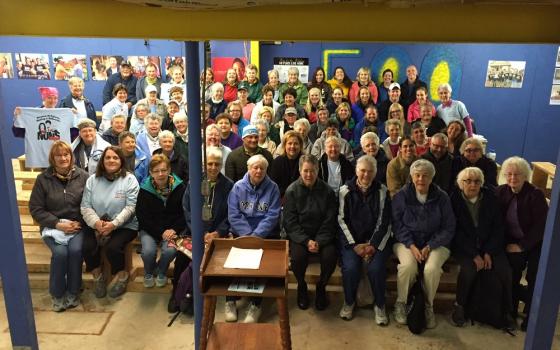I think “slackitivism” gets a bad rap. I mean, I don’t actually believe that a hashtag can save the world, but hashtags, viral videos, Facebook posts and the like can raise awareness – and aware, educated people do, in fact, make a difference. And for that reason, I rarely roll my eyes at social media issue campaigns (2010’s post-your-bra-color-to-Facebook absurdity being a notable exception).
Internet activism on its own is not enough, but it pairs nicely with on-the-ground work, creating – I think – an effective and symbiotic relationship. When lobbyists come knocking on a legislator’s door, it would be almost impossible for her to say that her constituents don’t care about a particular issue when hundreds of thousands of them are obsessively tweeting about it or turning their Facebook profile pictures green, purple, orange or what have you.
And we all know that the squeaky wheel gets the grease.
It’s important to remember, however, that this system only works when – after the digital world has become dedicated to a cause – there are real people prepared to do real work, which, in many communities around the world, is a group that has historically included women religious.
Global Sisters Report is overflowing with stories of sisters’ ministries, often in places other people are afraid to go. For example, Franciscan Missionaries of Mary are in Liberia education people about Ebola, Our Lady of Mission Sisters are tackling pervasive illiteracy in Vietnam’s migrant worker communities, and Sisters of Saint Francis are in Haiti finding ways to ensure everyone has clean drinking water.
In post-Katrina New Orleans, it’s no different. It’s been nine years since the hurricane devastated the city, killing more than 1,800 people and leaving more than a million homeless, and for the last seven years, Catholic sisters from all over North America have convened there annually to rebuild houses and repair houses in the Big Easy.
This year’s Nuns Build (as the event is affectionately known) began yesterday and will continue through Friday. During the week, the sisters will take on construction tasks such as hanging drywall, painting walls and installing windows for the St. Bernard Project, a New Orleans-based nonprofit that has rebuilt homes in Joplin, Mo., and the Sandy-wracked East Coast in addition to their work in New Orleans.
New Orleans’ recovery hasn’t been easy. In addition to the storm’s material toll, Katrina laid bare many of the city’s racial and class issues; that Katrina was disproportionately disastrous for the city’s poor blacks is a popular refrain – and one that is corroborated by experts and observers.
Next September will mark 10 years since Katrina. Without a doubt, Katrina-related hashtags will trend on Twitter and many Americans will take to Facebook to post their reflections on the decade or perhaps to vent about natural disasters and racial disparity. I think most of this will be helpful. It will be a reminder to those of us who don’t live New Orleans’ daily reality that there is still work to be done.
And that reminder, in turn, has the potential to provide the boost – both financial and moral – that organizations like Nuns Build and St. Bernard Project need to continue moving forward.
[Dawn Cherie Araujo is staff reporter for Global Sisters Report based in Kansas City, Mo.]

